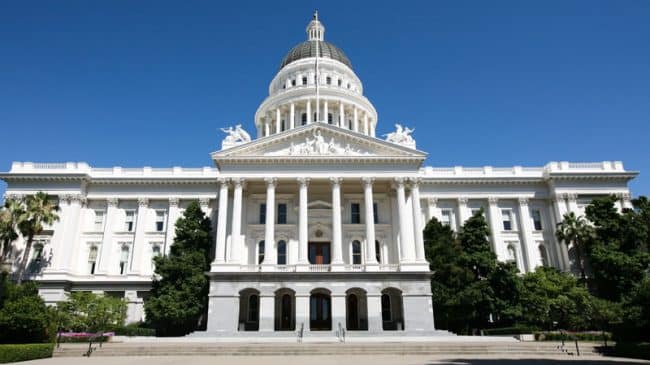Voter Guide: 2016 California Ballot Initiatives
In Citizens United v. Federal Election Commission (2010) the Supreme Court ruled that political contributions and spending were protected as “free speech” under the First Amendment. Prop 59 is a non-binding measure that encourages California members of Congress to exercise all of their constitutional authority to overturn that Supreme Court decision. Specifically, it would encourage the California congressional delegation to propose and ratify an amendment to the United States Constitution overturning the decision and stating that corporations should not have the same rights as human beings. Prop 59 is non-binding, which means that it does not actually overturn the Citizen United decision nor does it impose a penalty on legislators who do not comply.
Fiscal Impact:
None
Proponents’ Arguments For:
Proponents of Prop 59 argue that corporations and billionaires should not be allowed to buy our elections, and the Citizen United decision allows them to do so. By giving corporations the same “rights” as human beings, it allows them to spend unlimited amounts of money on elections. Other decisions have overturned limitations on how much billionaires can spend on politics.
All California voters should have the same voice in politics, but corporate and billionaire political spending lets them influence election results and make it harder for other voices to be heard. The Supreme Court was wrong and must be corrected. Corporations aren’t people and don’t have rights. Voters should be able to set reasonable limits on political and campaign spending and contributions.
They say California voters have used ballot measures to instruct and improve state and local government before, and Prop 59 will tell Congress to pass an amendment to the Constitution to stop unfair political spending.
Opponents’ Arguments Against:
Opponents of Prop 59 argue that it is a big waste of taxpayers’ time and dollars. It does not stop any of the political spending the proponents complain about. Instead it is just a senseless, non-binding advisory measure furthering their campaign finance reform goals. Measures of non-binding nature do not belong on the ballot and clog the democratic process.
They say Prop 59 argues that free speech should not apply to the many thousands of small business owners and others who choose to incorporate. Indeed many churches, newspapers, television stations, Facebook, Google, Twitter, non-profits like Common Cause, League of Women Voters, and the ACLU are incorporated. All of these corporations are in fact composed of people who have as much right to free speech and political spending as any other voter.
Proposition 59 asks the California members of Congress to change the First Amendment of the United States Constitution. We should not ask this Congress to tinker with the First Amendment which guarantees and protects the right to practice religion, free speech, free press, peaceably assemble and associate with others, and petition the government.
Discussion:
This ballot measure does nothing to inform the California congressional coalition about the feelings of Californians about Citizens United that could not be accomplished with much less cost and bother by a good poll.
Constitutional matters should not be taken lightly or driven by anything other than a massive will of the American people. An attempt to overturn Citizens United by Congress would mean they could, at the same time, change any part of the First Amendment they desire. Given the controversies and conflicts between government and private individuals and organizations over free speech, religious freedom, and free press, the risks that Congress would attempt to further expand their power and limit individual rights is too great.
Moreover, Citizens United was a decision that gave free speech back to Americans. Campaign finance limits always sound good and are often popular, but they always wind up restricting the speech of some and not of others. For example, federal lawyers arguing against Citizens United before the Supreme Court said that they should be able to ban and confiscate any book that mentions a political candidate and is published during an election!
Meanwhile, all the fears of the evils of corporate and billionaire spending simply have not materialized. There have been three election cycles since the Citizens United ruling and what we have seen is:
· For profit spending on campaigns has remained flat at 2-5% of total campaign spending and only a handful of for profit companies give to campaigns at all.
· Spending not controlled by political campaigns, so called “outside spending”, such political spending by groups like the Humane Society, AFL-CIO, NRA, Environmental Defense, Chamber of Commerce, etc., is crucial so that politicians and political parties don’t control the public discussion. But even that spending was just 13% of total political spending in 2014, while it was 17% in 2000, 10 years before Citizens United.
· Overall political spending grew just 1.5% between 2006 and 2014.
Citizens United did not lead to an explosion in political spending by corporations and billionaires. It made political spending more competitive and freed up everyone to exercise their free speech rights on political issues.

